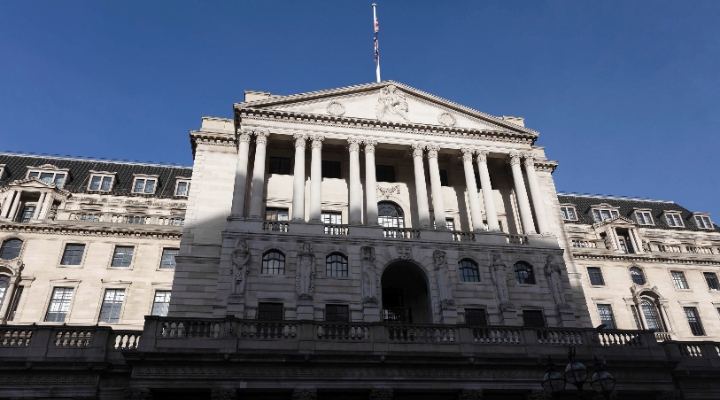
The UK's annual inflation rate was steady last month, fresh figures show, defying expectations of a slight acceleration.
According to the Office for National Statistics (ONS), the UK's rate of annual consumer price inflation (CPI) was unmoved at 4.0% in January, where it had stood in December.
It had been expected to pick up to 4.2%, according to FXStreet cited consensus.
Consumer prices declined 0.6% in January from December. They had been expected to decline at a lesser monthly pace of 0.3%, according to FXStreet. Prices had risen 0.4% in December from November.
Producer prices fell 3.3% on-year last month, the pace of decline picking up from a 2.1% slip in December. A lesser fall of 3.0% was expected by market analysts, FXStreet said.
On a monthly basis, producer prices fell 0.8% in January from December, defying expectations of a 0.2% rise. They had fallen 0.4% in December from November.
When is The Next Bank of England Decision?
The UK annual inflation rare hit a recent peak of 11.1% in October 2022, and faded to as low as 3.9% in November of last year. However, the Bank of England has a 2% inflation target, so the latest CPI reading is still double that.
The next Bank of England decision is due on March 21. There will be another CPI reading a day prior to that decision for Threadneedle Street to digest.
Governor Andrew Bailey will give a press conference on the situation at 3pm today.
On February 1, Bailey made a surprise prediction in the press conference following the monetary policy report: that inflation this year would start to fall back towards target in the spring.
That's good news for those wanting rate cuts. But it will then start to rise again towards the end of the year to 2.75%. The bad news for homeowners yearning for a return to ultra-cheap mortgages? Inflation won't hit target until 2026. You may recall this target has already been shifted to 2025 from 2024.
How Would a Future Interest Rate Cut Affect Me?
As interest rates decrease, cash savings rates on bank accounts and ISAs will likely decrease, meaning savers may start getting less bang for their buck at the bank. However, lower rates will also make consumer debt cheaper, which could bring relief to people with substantial credit card debt and mortgage holders with variable-rate products. Those who have remortgaged into fixed-rate products in the last two years may not feel this until they remortgage once more.
What Will Equities and Bonds do if Rates Are Cut?
Markets tend to "price in" any changes very quickly, so the reaction to this kind of news will be swift. Conventional wisdom suggests rate cuts are better for equities than bonds. But while bonds have returned to favour in the higher interest rate era because of their tempting yields, rate cuts may not be bad for them either. Falling interest rates mean lower yields, which push bond prices ever higher – a key factor in total returns. And lower rates make existing bonds, and particularly those already issued during a period of rate hikes, more attractive for yield.
Many pension funds, for whom rising bond yields have caused havoc, could also stand to benefit from a looser monetary approach. Politically, and cosmetically, at least, this may well boost the government's attempts to reignite the UK’s stagnant economy as (in theory) it encourages institutional investors to plough money into promising growth businesses.
How Will The Real Economy React?
Over in the "real economy", the unwinding of monetary policy will likely also benefit shops and online businesses who have been squeezed by the twin spectres of supply chain inflation and lower consumer confidence. If higher interest rates have the power to curb spending in the UK economy and cool gross domestic product growth, lower rates will in theory create the opposite effect. In practice, however, there is a lot of uncertainty. While lower interest rates tend to stimulate the economy, the UK is still expected to suffer from low growth in the coming years wherever rates end up. Either way, it will take time for the precise effects to be visible, let alone quantifiable.
By Eric Cunha, Alliance News news editor, with additional material by Ollie Smith, James Gard and Sunniva Kolostyak





























